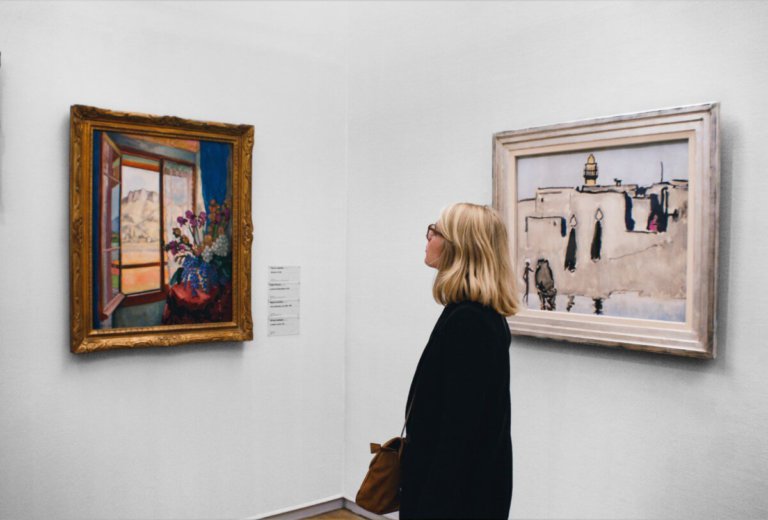
Unleashing the ability to express through the stroke of a paintbrush, a pat of papier-mâché and a roll of plasticine, art education introduces children to endless creative techniques and a plethora of fascinating art forms.
As a subject that encourages learners to be free with their artistry and imagination, many educators and creative industry figures have questioned its accessibility in the UK school system.

For some educators, art and education walk hand-in-hand. Source: Chris Benson/Unsplash
Recently, English actress and campaigner Julie Hesmondhalgh confessed to The Guardian Observer that she was dismayed to see that arts education was viewed as a luxury and that policymakers in the UK are plotting to limit access to arts and culture for British children.
“Top private schools pour millions into arts teaching every year and the people who have been making these policies in government have seen and felt the massive advantages that can bring. It is not that I want to produce nothing but actors and performers in this country, it is that it makes all pupils more confident and articulate in the wider world,” Hesmondhalgh explains.
Striving for the freedom of art education for all learners, not just those who attend top private schools, Hesmondhalgh is concerned about the threat of losing core educational art subjects altogether.
In a bid to enhance the accessibility of art education in the UK, the Durham Commission on Creativity and Education has released a report that reviews the role creativity and creative thinking should play in the education of young people.
In the report, the commission reveals that “Teachers who responded to the Commission’s survey reported that in schools where arts provision has been squeezed, there has been a broader negative effect on learners’ oral skills and self-confidence. Conversely schools with a thriving arts programme report high levels of pupil behaviour and self-confidence.”
Counteracting the squeeze of art education in UK schools, the Commission believes that “A better understanding of the kinds of creativity developed through arts subjects will help teachers to design and deliver a richer, broader and more balanced curriculum.
It adds that the “Arts are a resource from which people can draw their inspiration for creative thinking. They are not ‘soft subjects’; they offer a body of skills, knowledge and understandings that generate a disciplined route to the acquisition of creativity.”
Understanding that art education can confer a strong sense of confidence and agency and encourage social interaction and communication, the Commission also believes that the erosion of these subjects from the post-primary curriculum is damaging for young people.
Calling out for increased arts integration in schools and for arts subjects to no longer be treated as specialisms, the Durham Commission on Creativity and Education continues to stand by educators, schools and students that want to create without restriction.
Another creative industry figure, Steve McQueen, recently showed his support for art education in the form of a public exhibition.
The British artist, film director and screenwriter brought together 1,504 of London’s primary schools with Year 3 pupils, including State, Independent, Faith and Special schools, Pupil Referral Units and time educated children, to produce ‘Year 3’.
“Art school was my liberation, that was where I could achieve my goals and realise myself. That opportunity should be offered up to every single kid and they can go off in whatever direction they want.
“You think of someone like Alexander McQueen or Damien Hirst, both came from working-class backgrounds. They had the chance to experiment at school – and they ended up at the top of their game,” he declares.
Explaining that his exhibition is a “level playing field” and demonstrating that art can be accessible for all, the work is featured in Tate Britain – one of the most iconic art galleries in London.
He hopes that all 76,000 London school children who participated in the project, as well as those that come to view the Year 3 exhibit, understand that anyone can be an artist/creative.
And rather than just sitting back and watching accessibility to the arts in schools slowly get washed away, people like Steve McQueen, the Durham Commission on Creativity and Education and Julie Hesmondhalgh are determined to paint a new picture for UK school children – one where everyone is included.
Liked this? Then you’ll love these…
Why auditions are important for developing artists
Are early school start times impacting students’ academic performance?







